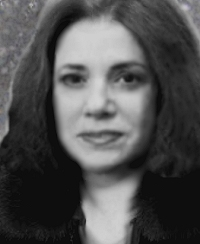A Quote by Charles Caleb Colton
Natural good is' so intimately connected with moral good, and natural evil with moral evil, that I am as certain as if I heard a voice from heaven proclaim it, that God is on the side of virtue. He has learnt much, and has not lived in vain, who has practically discovered that most strict and necessary connection, that does and will ever exist between vice and misery, and virtue and happiness.
Related Quotes
When you say there's too much evil in this world you assume there's good. When you assume there's good, you assume there's such a thing as a moral law on the basis of which to differentiate between good and evil. But if you assume a moral law, you must posit a moral Law Giver, but that's Who you're trying to disprove and not prove. Because if there's no moral Law Giver, there's no moral law. If there's no moral law, there's no good. If there's no good, there's no evil. What is your question?
If a man of good natural disposition acquires Intelligence [as a whole], then he excels in conduct, and the disposition which previously only resembled Virtue, will now be Virtue in the true sense. Hence just as with the faculty of forming opinions [the calculative faculty] there are two qualities, Cleverness and Prudence, so also in the moral part of the soul there are two qualities, natural virtue and true Virtue; and true Virtue cannot exist without Prudence.
There is nothing that does not have something perfect in it; and it is the happiness of good taste to be able to find this perfection in all things. But there is a natural malignity that often discovers a vice in the midst of several virtues, in order to reveal and proclaim the discovery to all the world - a quality that is more the mark of a naturally evil temperament than a superior sense of discrimination. And it is truly an evil lot, to pass one's life always feeding off the imperfections of others.
We have only one story. All novels, all poetry, are built on the neverending contest in ourselves of good and evil. And it occurs to me that evil must constantly respawn, while good, while virtue, is immortal. Vice has always a new fresh young face, while virtue is venerable as nothing else in the world is.
In this world, there is no absolute good, no absolute evil," the man said. "Good and evil are not fixed, stable entities, but are continually trading places. A good may be transformed into an evil in the next second. And vice versa. Such was the way of the world that Dostoevsky depicted in The Brothers Karamazov. The most important thing is to maintain the balance between the constantly moving good and evil. If you lean too much in either direction, it becomes difficult to maintain actual morals. Indeed, balance itself is the good.
A man that hath no virtue in himself, ever envieth virtue in others. For men's minds, will either feed upon their own good, or upon others' evil; and who wanteth the one, will prey upon the other; and whoso is out of hope, to attain to another's virtue, will seek to come at even hand, by depressing another's fortune.
There is a moral virtue, a moral fidelity, ability and honesty, which other men, besides church members, are, by good nature and education, by good laws and good examples nourished and trained up in; so that civil places and trust and credit need not be monopolized into the hands of church members (who sometimes are not fitted for public office), while all others are deprived and despoiled of their natural and civil rights and liberties.
I see the liberty of the individual not only as a great moral good in itself (or, with Lord Acton, as the highest political good), but also as the necessary condition for the flowering of all the other goods that mankind cherishes: moral virtue, civilization, the arts and sciences, economic prosperity.
One may say that evil does not exist for subjective man at all, that there exist only different conceptions of good. Nobody ever does anything deliberately in the interests of evil, for the sake of evil. Everybody acts in the interests of good, as he understands it. But everybody understands it in a different way. Consequently men drown, slay, and kill one another in the interests of good.



































